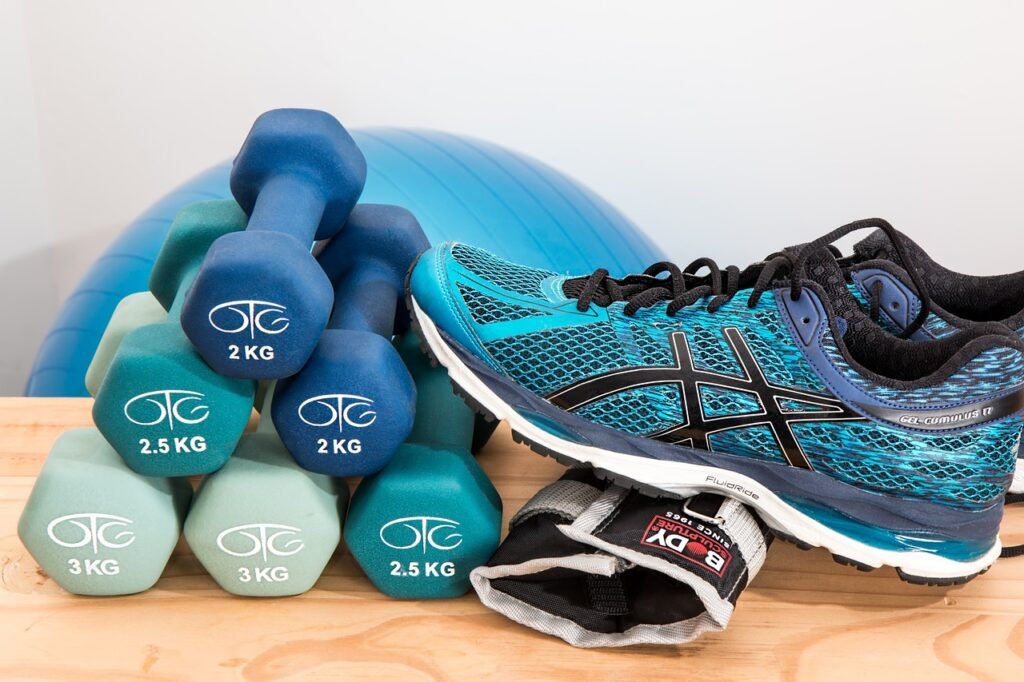This post may contain affiliate links which means I may receive a commission for purchases made through links. I will only recommend products that I have personally used! Learn more on my Private Policy page.
Introduction to Menopause Supplements
Perimenopause is a natural transition in a woman’s life, but it often comes with a host of uncomfortable symptoms. Hot flashes, night sweats, mood swings, and sleep disturbances can significantly impact quality of life. While hormone replacement therapy (HRT) is an option for some, many women seek natural alternatives to manage their symptoms. This is where menopause supplements come into play.
Menopause supplements are designed to provide relief from common menopausal symptoms using a combination of vitamins, minerals, herbs, and other natural ingredients. But with so many options on the market, it can be overwhelming to choose the right one. In this comprehensive guide, we’ll explore the most effective menopause supplements, their benefits, and what you should know before incorporating them into your wellness routine.
Top Menopause Supplements: Efficacy and Safety
Black Cohosh
Black cohosh is one of the most well-known and studied herbs for menopause symptom relief. Derived from the root of the North American black cohosh plant, this supplement has been used for centuries to address women’s health issues.
✅ May reduce hot flashes and night sweats
✅ Can help alleviate mood swings and irritability
✅ Some studies show improvement in sleep quality
❌ May cause mild side effects like headache or stomach discomfort
❌ Not recommended for women with liver problems
❌ Long-term safety data is limited
Research on black cohosh has shown mixed results, but many women report significant relief from vasomotor symptoms like hot flashes. It’s important to choose a high-quality supplement and follow dosage instructions carefully. Always consult with your healthcare provider before starting any new supplement regimen, especially if you have existing health conditions.
Soy and Isoflavones
Soy-based supplements and foods rich in isoflavones have gained popularity as a natural approach to menopause symptom management. Isoflavones are plant-based compounds that can mimic estrogen in the body, potentially helping to balance hormone levels during menopause.
✅ May reduce hot flashes and night sweats
✅ Could support bone health
✅ May offer cardiovascular benefits
❌ Effects can vary greatly among individuals
❌ May interact with certain medications
❌ Not recommended for women with a history of hormone-sensitive cancers
While some studies have shown promising results, the effectiveness of soy for menopause symptoms can be inconsistent. This may be due to individual differences in how women metabolize soy compounds. If you’re considering soy supplements, it’s worth discussing with your doctor to determine if they’re appropriate for you.
Red Clover
Red clover is another plant-based supplement rich in isoflavones. It’s often used as an alternative to soy for women seeking natural menopause relief.
✅ May help reduce hot flashes
✅ Could support bone health
✅ May improve cardiovascular health
❌ Research results are mixed
❌ May interact with blood-thinning medications
❌ Long-term safety not well established
While some women find relief with red clover supplements, scientific evidence is still inconclusive. Early concerns about its effect on uterine health have not been substantiated in recent studies, but it’s always best to consult with your healthcare provider before use, especially if you have a history of hormone-sensitive conditions.
Vitamins and Minerals for Menopausal Health
Calcium and Vitamin D
Calcium and vitamin D are crucial for maintaining bone health, which becomes even more important after menopause when the risk of osteoporosis increases.
✅ Essential for bone health
✅ May help prevent osteoporosis
✅ Vitamin D supports immune function and mood
❌ High doses of calcium may increase risk of kidney stones
❌ Excessive vitamin D can lead to toxicity
❌ Calcium supplements may interfere with certain medications
The recommended daily intake of calcium for women over 51 is 1,200 mg, while vitamin D recommendations vary but generally range from 600 to 800 IU per day. It’s best to get these nutrients from your diet when possible, but supplements can help fill the gap. Remember to spread calcium intake throughout the day for better absorption, and consider getting your vitamin D levels checked to determine if you need supplementation.
B Vitamins
B vitamins play a crucial role in energy production, brain function, and mood regulation – all of which can be affected during menopause.
✅ May help with energy levels and fatigue
✅ Can support mood and cognitive function
✅ Important for heart health
❌ High doses of B6 can cause nerve damage
❌ May interact with certain medications
❌ Some people may experience digestive upset
A B-complex supplement can be beneficial during menopause, particularly if you’re experiencing fatigue or mood changes. B12 and folate are especially important for cognitive function and heart health. As with all supplements, it’s important to follow recommended dosages and consult with your healthcare provider, especially if you’re taking medications.
Magnesium
Magnesium is involved in over 300 enzymatic reactions in the body and can be particularly beneficial during menopause.
✅ May help reduce hot flashes
✅ Supports bone health
✅ Can improve sleep quality and mood
❌ May cause digestive side effects in high doses
❌ Can interact with certain medications
❌ Absorption can be affected by other minerals
Many women find that magnesium supplements help with sleep issues and mood swings during menopause. The recommended daily intake for women over 31 is 320 mg. While magnesium is found in many foods, including leafy greens and nuts, supplementation may be necessary to reach optimal levels. Consider a magnesium glycinate form for better absorption and fewer digestive side effects.
Other Popular Menopause Supplements
Evening Primrose Oil
Evening primrose oil is rich in gamma-linolenic acid (GLA), an omega-6 fatty acid that may help with hormone balance and inflammation.
✅ May help reduce breast pain
✅ Could improve skin health
✅ Some women report reduced hot flashes
❌ Research results are mixed
❌ May increase bleeding risk
❌ Can cause digestive upset in some people
While some women swear by evening primrose oil for menopause symptom relief, scientific evidence is limited. It’s generally considered safe for short-term use, but be cautious if you have a history of seizures or are taking blood-thinning medications.
St. John’s Wort
St. John’s Wort is well-known for its potential to alleviate mild depression and may offer benefits for menopausal mood swings.
✅ May help with mood swings and mild depression
✅ Could improve sleep quality
✅ Some studies show reduction in hot flashes
❌ Interacts with many medications
❌ Can cause photosensitivity
❌ May affect hormonal birth control
While St. John’s Wort shows promise for mood-related menopause symptoms, it’s crucial to be aware of its potential interactions with many common medications, including antidepressants and birth control pills. Always consult with your healthcare provider before using St. John’s Wort, especially if you’re taking any medications.
Choosing the Right Menopause Supplement
Selecting the right menopause supplement is a personal decision that should be based on your individual symptoms, health history, and preferences. Here are some factors to consider:
- Specific symptoms you’re experiencing
- Any existing health conditions or medications
- Quality and purity of the supplement
- Dosage and form (capsules, tablets, liquids)
- Potential side effects and interactions
- Cost and availability
It’s always recommended to consult with a healthcare provider before starting any new supplement regimen. They can help you determine which supplements are most appropriate for your individual needs and monitor for any potential interactions or side effects.
Frequently Asked Questions About Menopause Supplements
Are menopause supplements safe?
While many menopause supplements are generally considered safe, it’s important to remember that “natural” doesn’t always mean risk-free. Some supplements can interact with medications or may not be suitable for women with certain health conditions. Always consult with a healthcare provider before starting any new supplement regimen.
How long do menopause supplements take to work?
The time it takes to see results from menopause supplements can vary widely. Some women may notice improvements within a few weeks, while others might need to take supplements for several months before experiencing significant relief. Consistency is key – give a supplement at least 8-12 weeks before deciding if it’s effective for you.
Can I take multiple menopause supplements together?
While it’s possible to combine certain menopause supplements, it’s important to do so carefully and under the guidance of a healthcare provider. Some supplements may interact with each other or become less effective when combined. A healthcare professional can help you create a safe and effective supplement regimen tailored to your needs.
Are there any side effects to taking menopause supplements?
Like any supplement or medication, menopause supplements can cause side effects in some women. Common side effects may include digestive upset, headaches, or allergic reactions. If you experience any unusual symptoms after starting a new supplement, discontinue use and consult with your healthcare provider.
Conclusion: Creating a Personalized Menopause Support Plan
Navigating menopause can be challenging, but with the right approach, including appropriate supplementation, you can manage symptoms and support your overall health during this transition. Remember that what works for one woman may not work for another, so it may take some trial and error to find the right combination of supplements and lifestyle changes that work best for you.
While supplements can be a valuable tool in managing menopause symptoms, they should be part of a holistic approach that includes a balanced diet, regular exercise, stress management, and good sleep hygiene. By combining these strategies with carefully chosen supplements, you can create a personalized menopause support plan that helps you feel your best during this new chapter of life.
Always prioritize open communication with your healthcare provider throughout your menopause journey. They can offer personalized advice, monitor your progress, and help you make informed decisions about your health and well-being. With the right support and resources, you can navigate menopause with confidence and embrace the positive aspects of this natural life transition.
This post contains affiliate links, which means I may earn a small commission if you make a purchase through the links provided, at no additional cost to you. Thanks for supporting GenX Lisa!


